
Access to quality seed inputs is one of the first steps to achieving higher productivity and a profitable farming business. In Somalia there is a need for certified high quality seed, which are true to type and with high percent germination and purity. Using the readily available market opportunity, combined with the vision to change the current short-term emergency relief atmosphere, the SATG has initiated a seed production business in partnership with local farmers.

The SATG seed business program will initially start with open pollinated varieties of maize, cowpea, mung beans and sesame which are important crops contributing to food security in Somalia. This means that it is not only aiming to make a profit, but it also contributes to the improvement of farmers’ economic gains. This especially benefits small-scaled farming communities in South-central Somalia. Using contracting seed production method, SATG intends to tackle two issues at the same time:
- Increasing the availability of high quality agricultural seed inputs.
- Improving the entrepreneurship and business skills of farmers.
The production of marketable seeds begins with the planting of pure seeds into a rearing environment that assures optimum and rapid growth. This will allow harvest in the shortest possible time.
The purity of any commercial product propagated by seed begins with the genetic purity of the seed sown. Genetic purity standards have to be established by state seed laws and seed certification agencies to assure growers that the seed they buy, produce and sell is accurately labeled with the correct crop and variety. Seed purity standards also specify the percentage of contamination by seed from weedy species or other cultivated varieties. SATG in partnership with the Ministry of Agriculture has developed seed policies and regulations that will enable farmers and seed growers produce certified seed.

The seed policy clearly indicates that the physical purity of seed refers to the presence and identity of weed seeds and the percentage of other materials, such as dirt or plant residues. In addition, the germination capacity of the seed in a standard test must be shown on the label. In some cases, seeds must also be tested for the presence of seed-borne diseases. The production of high quality seeds is a challenging task. Seed producers must take many steps to protect the genetic integrity. These steps include: ensuring the integrity of their sown seed, properly identifying and labeling plants and fields, sowing seeds on clean land which has not been used to grow the same crop in the most recent past, removing rogue plants, or plants which are not true to the variety’s characteristics, and employing physical isolation (via mesh cages, distance isolation, time isolation or hand pollination) to ensure that pollination only occurs among plants of the desired variety.
In this 2015 Deyr season, SATG decided to take up the challenging task of producing high quality seeds. Building on its technical expertise, SATG wants to become a reliable and major supplier in the Somali seed industry by responding to the existing market demand for high quality seeds. SATG provided a Credit Scheme to its contracted farmers, which consist of In-kind Farm inputs to cover one hectare of land. These inputs include:
- Land preparation (ploughing, harrowing furrowing and ridging)
- Fertilizer (DAP and UREA) application.
- Safe use of pesticides.
- Bookkeeping.
It’s anticipated to produce certified seed of high quality for commercial sale to interested stakeholders.
…last season, we produced a surplus of Maize grains, more than our family needed for our domestic use, under the new technology provided by SATG. But, unfortunately, the selling price in the market was low so we could not sell all the surplus harvest, therefore if we can get SATG’s market guarantee for the seed production for this Credit Scheme, we are more than happy and ready to partner with SATG…
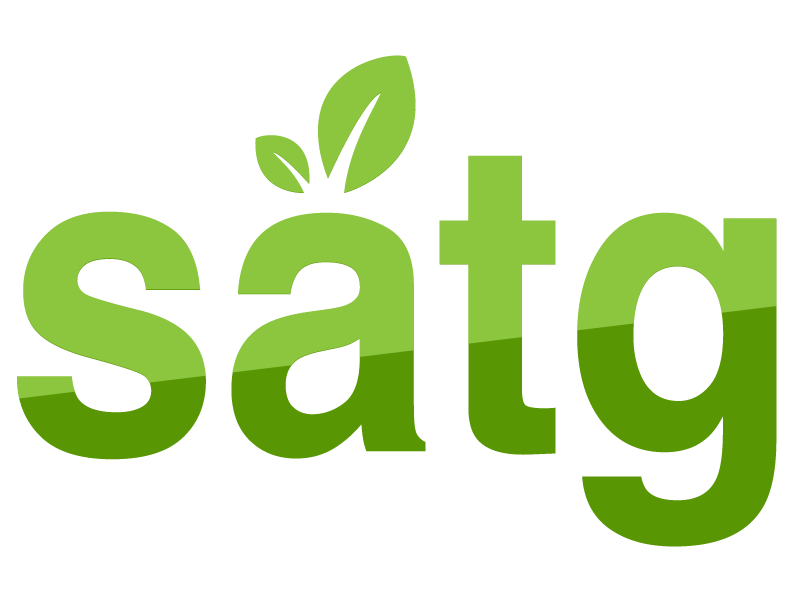
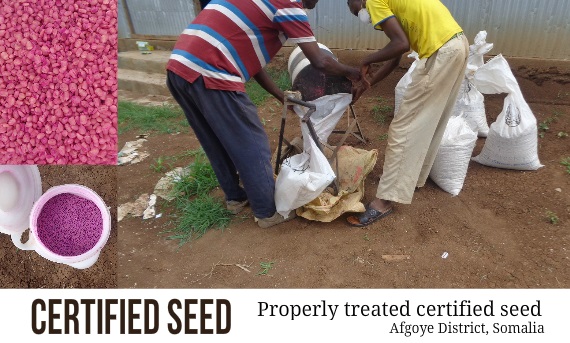

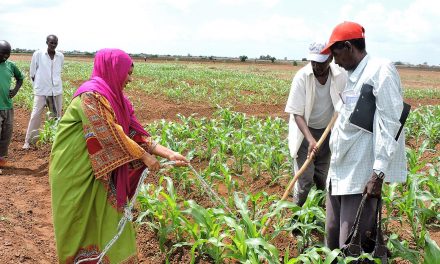

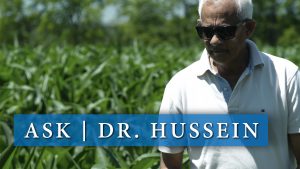
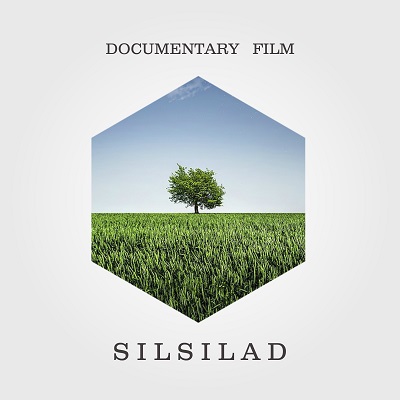

Recent Comments